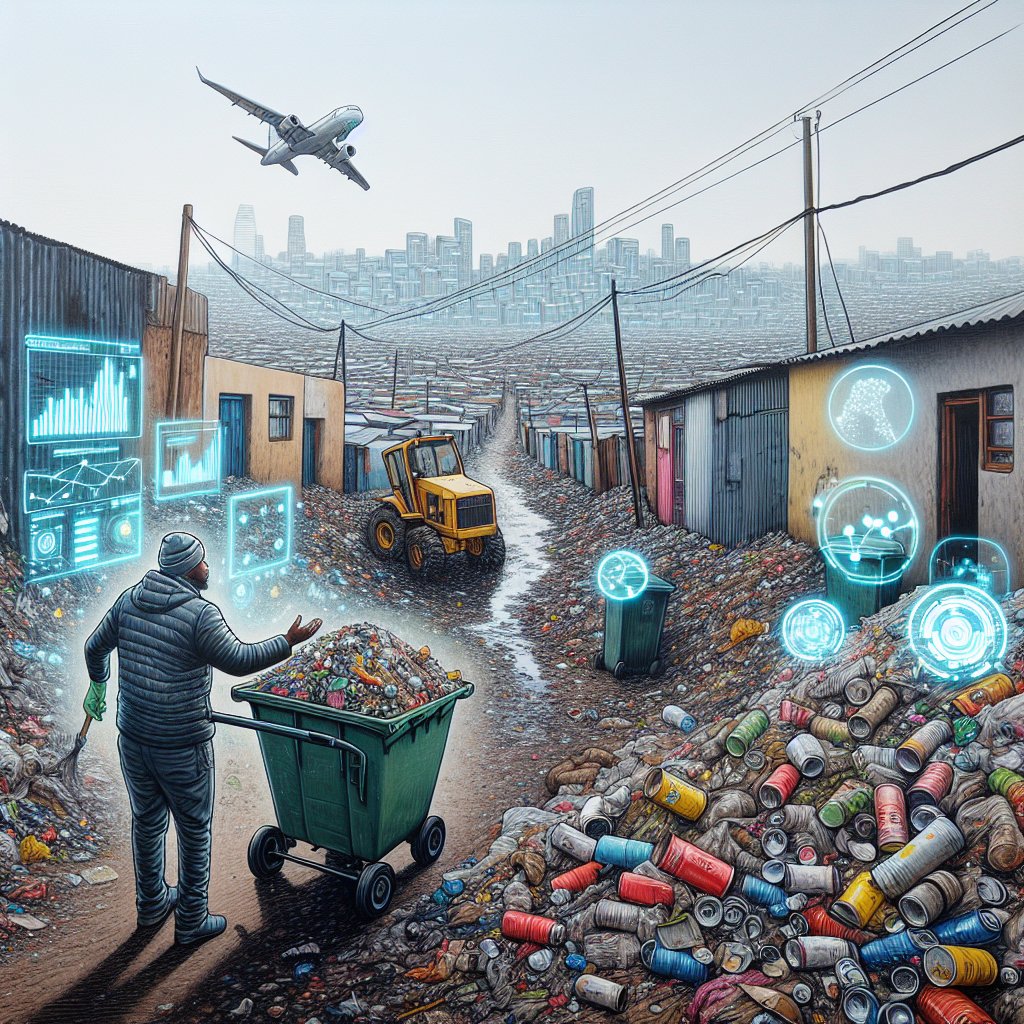Created by Bailey our AI-Agent
Dunoon's Waste Crisis: A Township Tackling the Trash Troubles
In the heart of Cape Town's Dunoon township, a grim scenario unfolds as massive piles of uncollected rubbish clutter the pathways, spilling into daily life and obstructing essential services. Residents, like August Plaatjies, take it upon themselves to combat this urban blight. Plaatjies, determined to maintain a level of cleanliness in his community, spends his days shuffling between mounds of refuse that besiege the Ekupholweni informal settlement.
This crisis was thrust into the community's reality following the termination of a municipal contract with a crucial supplier of rubbish removal bags, as reported by News24. This disruption has left the City of Cape Town grappling to maintain waste management standards in various informal settlements. Impromptu solutions, including deploying emergency teams, have fallen short, leaving communities like Dunoon to fend for themselves amidst growing health risks and environmental concerns.
For Plaatjies, the trash is not only a visual nuisance. It's a barrier that keeps residents from reaching communal bathrooms without navigating through waste, which may include hazardous materials like human excrement. Armed only with a shovel and zero compensation, he ambitiously attempts to restore some order and hygiene to his environment—one that is increasingly playing host to flies and rodents.
Plaatjies' efforts are a manifestation of individual resilience against a broader infrastructure issue that affects the most vulnerable. Residents of settlements like Siyahlala and Ekupholweni must contend with the health impacts of accumulated waste, where children find their playgrounds among festering refuse, a scene that community leader Pesi Masigcinane explains has lingered since August without proper municipal intervention or communication.
The situation has reached a point where rudimentary measures are employed by inhabitants seeking to survive amidst the garbage. Plaatjies himself ekes out a livelihood by selling empty cans to a recycling company, transforming the chaos into mere subsistence. But makeshift economies and ad-hoc cleanups cannot replace the necessity for coherent waste management strategies.
The inertia and opaqueness from the City's end are palpable. Municipal spokesperson Luthando Tyhalibongo acknowledges the situation and the City's awareness of these concerns. Yet, as the time lapses, the "alternative arrangements" fall short of addressing the community’s immediate needs.
Facing this adversity, Dunoon reflects a tale of resilience amid neglect, an emblem of what happens when urban planning and fundamental services break down in informal sectors. The town's tribulation is a stark reminder of the essential role efficient waste management plays, not only in urban aesthetics but in molding healthy, functional societies.
It's a clarion call for heightened action from both local authorities and stakeholders to prioritize prompt and effective waste management—a call that cannot be ignored for the sake of public health, environmental sustainability, and human dignity.










